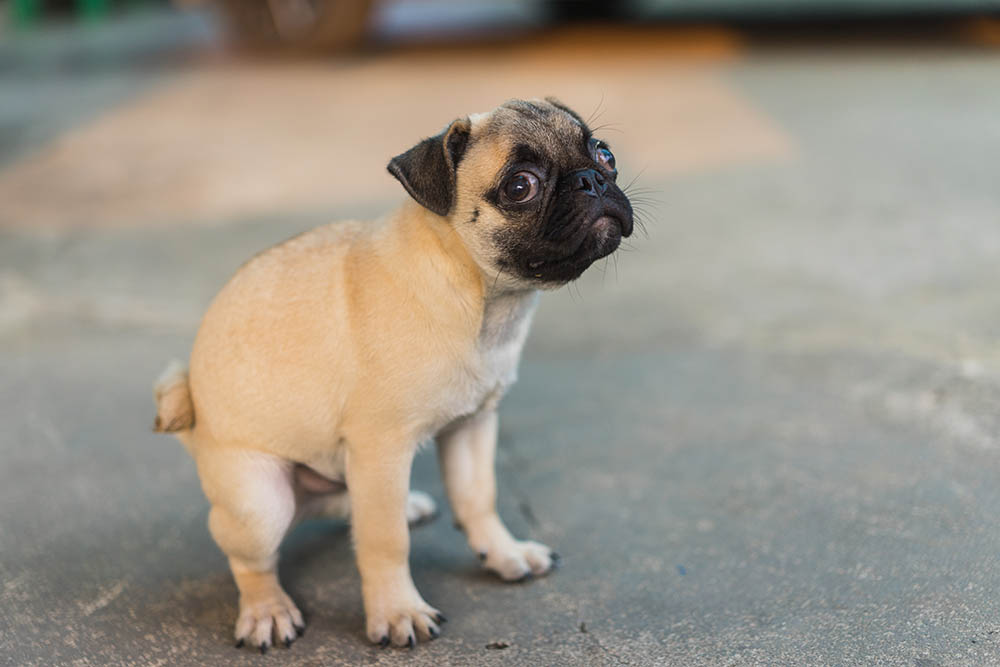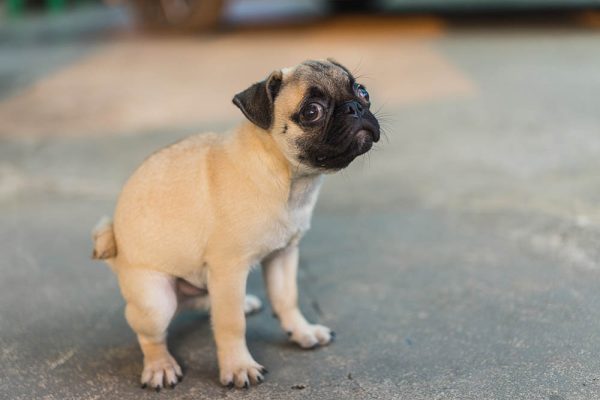You know the schedule like clockwork. Your dog eats a meal and then immediately needs to go outside to do their “business”. It’s almost like the food has run through their entire system within minutes with a laxative-type effect. If this sounds familiar, you’re not alone. This is a common concern amongst dog owners.
Is it normal behavior, though? What exactly is going on? Keep reading to find five potential reasons your pup could be rushing to poop after their meals.
The 5 Reasons Why Your Dog Poops Immediately After Eating
1. They’re a Puppy
It is completely normal for adult dogs to poop between one and five times a day. If your dog is a puppy, they could be going even more than that. Puppies can go as much as six times a day. They often need to poop anywhere from five to 30 minutes after their last meal.
As your puppy begins to age, their digestion will slow down, and they’ll gain more control over their bowels and will need to defecate less.
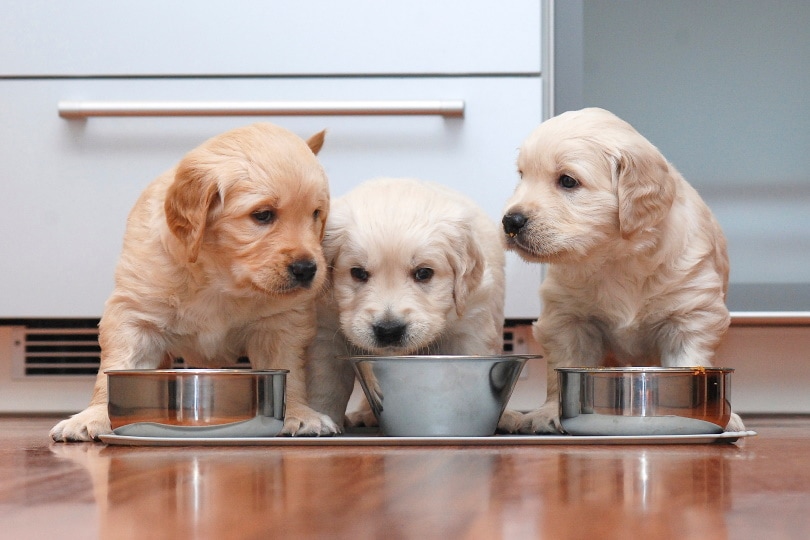
2. They’re Healthy
PetMD says that healthy dogs will go to the bathroom right after a meal because of how the canine digestive system is laid out. The stomach is “wired” to the colon with specific nerves that trigger the gastrocolic reflex. As your dog eats and their stomach begins to fill, the colon kicks into high gear and goes to work creating poop. This is called the gastrocolic reflex, and it can be seen in humans as well as animals.
It is important to note that if they poop right after their meal, they are not voiding the food they just ate. The waste they are creating was made from their meals the previous day. The new food they are eating is pushing on top of the prior day’s food, so they’ll need to void their body of that food before making room for the fresh stuff.
3. They’re Not Eating a Healthy Diet
We know that this sounds contradictory to our previous point, but it’s true. Dogs that eat lower-quality food tend to poop more often than those who are fed a higher-quality diet. So, while pooping after eating can symbolize a healthy digestive tract, it can also mean the food you’re feeding them isn’t the best quality.
Lower-quality foods tend to have more fillers. Fillers have no nutritional value so it’s normal for your dog’s body to get to work moving it out of their system. Foods that are high in grains tend to go through the system faster than those high in protein, too.
The type of food (wet or dry) can also affect your dog’s digestive system. Wet foods are higher in water content and may pass through their system faster than dry kibble.
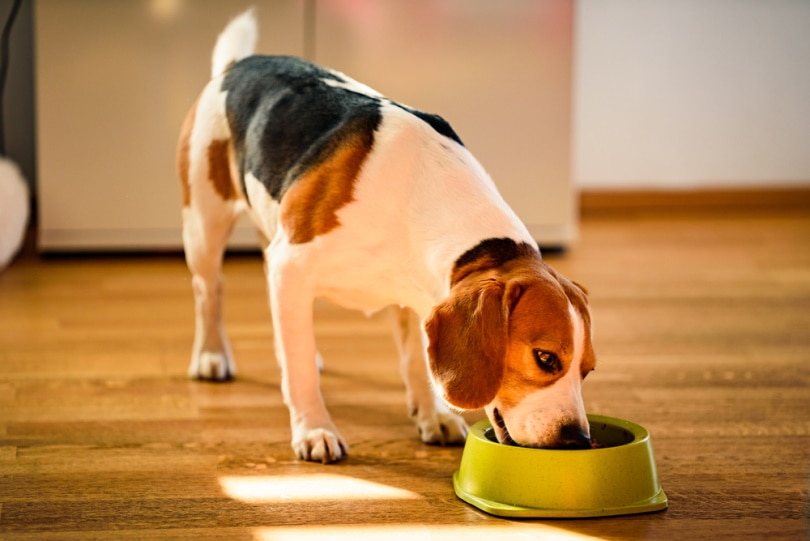
4. They Don’t Have a Set Feeding Schedule
If you don’t have a set feeding schedule for your dog, their digestive system could be all over the place. A routine feeding time will allow their body time to prepare for the food they are going to receive. You should not keep their food bowl full at all times as constant grazing can lead to overeating and obesity.
Puppies, in general, will need to be fed more often than adults, which is why they poop more. How often you’ll feed your young dog will depend on their breed.
VCA Animal Hospital recommends that adult dogs should have at least two meals a day. These meals should be around 12 hours apart. A breakfast, lunch, and dinner schedule work better for some families.
5. Their Exercise Regimen Changed
Exercise habits can impact your dog’s digestive system. Dogs often get excited during playtime and exercise. This excitement can decrease the amount of time it takes their food to go through their digestive tract.
Getting your dog on a regular exercise schedule is important. Exercise will invigorate their entire digestive system and help them to regulate their bowels.
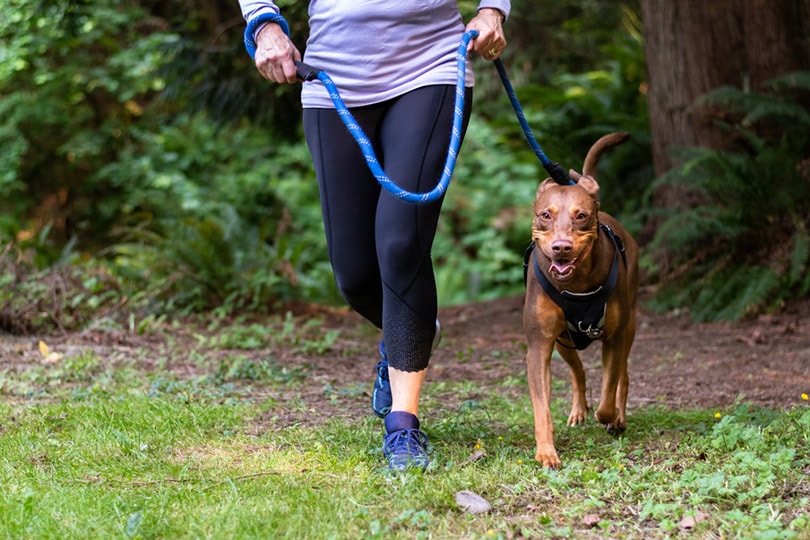

Is It Normal for My Dog to Not Poop After Eating?
You know your dog best. Any sudden and unexplainable changes in their bathroom habits could be a cause for concern.
If your pooch is usually pretty regular about pooping after eating and suddenly stops, there might be an underlying issue at play. If they are trying to poop but can’t, they may be constipated. This is a pretty common occurrence in dogs and is often something they can recover from quickly. However, constipation could be a sign of something more serious. You might want to consult with your veterinarian just for peace of mind.
- Straining
- Whining while trying to poop
- Discomfort
- Blood or mucus in stool
- Passing hard fecal material
- Scooting
- Licking the bum area
Final Thoughts
Dog behavior can be baffling at times. The best thing you can do as a pet owner is to get them onto a predictable schedule with feeding, exercise, and pooping. Doing so will provide your dog with the stability they need in their day-to-day lives and allow you to see important changes in their behavior as they happen.
Related Reads:
Featured Image Credit: FotoErro, Shutterstock

